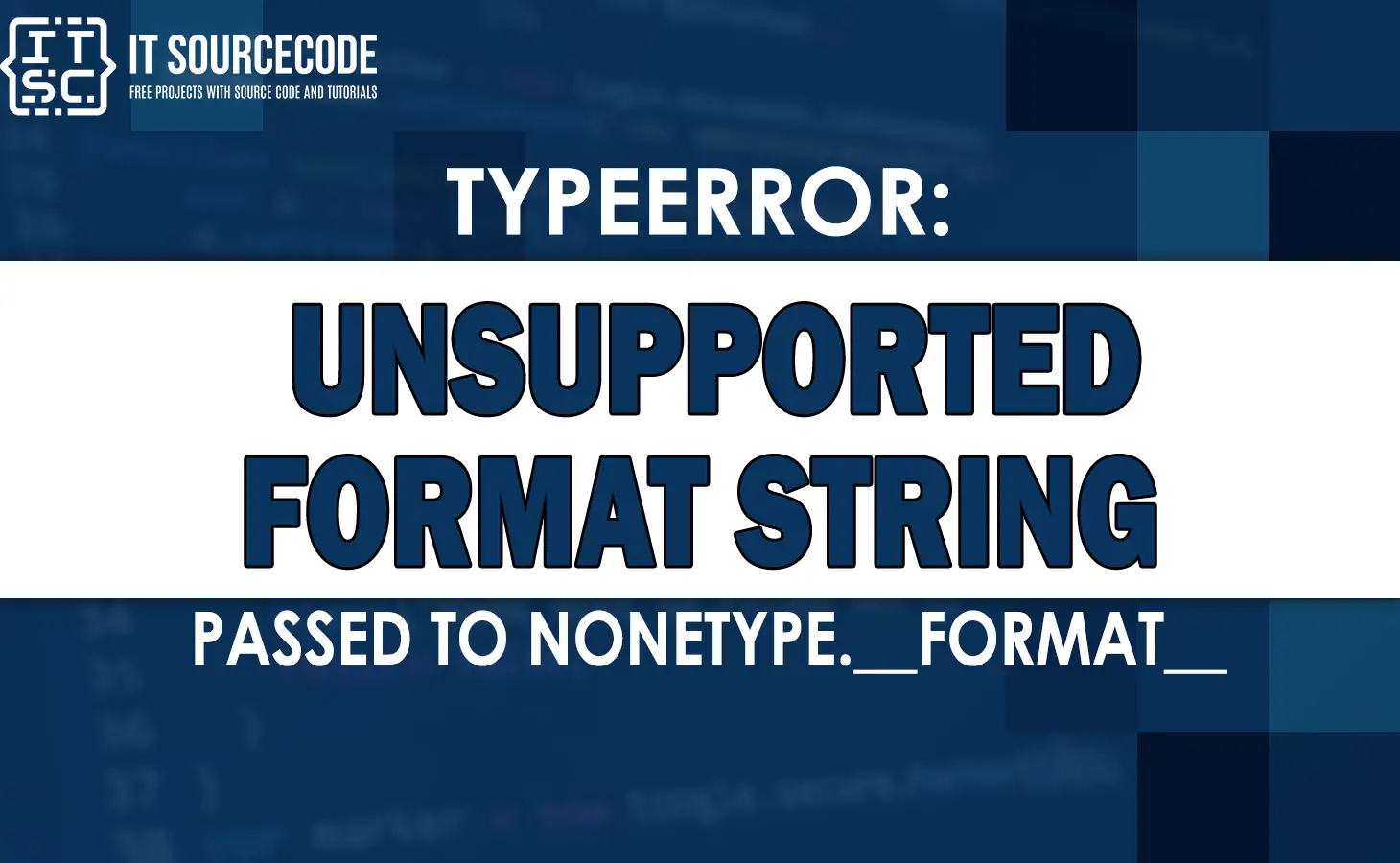In this article, we will discuss the full details of the typeerror: unsupported format string passed to nonetype.format.
We will discuss the common causes of this error, how to avoid it, and how to fix it when it occurs.
Let’s get started!
Why the error occur?
The error unsupported format string passed to nonetype.__format__ typically occurs because when you are passing an unsupported format string to an object of the NoneType.
In other words, you’re trying to format a string, yet the object you are trying to format is None or doesn’t support the formatting you are using.
What is TypeError: unsupported format string passed to nonetype.__format__?
The TypeError: unsupported format string passed to nonetype.__format__ occurs if you are trying to format a string using an unsupported format string on an object of the NoneType.
We will explain to you in detail the error message which so you will understand it better.
- TypeError:
- This error message shows that there is a type mismatch between the object and the format string.
- Unsupported format string:
- This specifies a format string which is not supported by the object.
- Nonetype:
- This is a built-in Python type that represents the absence of a value. None is often used to represent missing or null values.
Common causes of the error
Here are some of the most common causes of this error:
- It is possible you are using the wrong format string
- You are using a NoneType object
- You are using an empty string
Let’s take a look at the example on how the error occurs:
x = None
print(f"Value of x is {x:05d}")Output:
Traceback (most recent call last):
File “C:\Users\Dell\PycharmProjects\pythonProject\main.py”, line 2, in
print(f”Value of x is {x:05d}”)
TypeError: unsupported format string passed to NoneType.format
In this code, the variable “x” is assigned the value of None, which represents the absence of a value.
When the print statement attempts to format the value of “x” using an f-string, it uses the format specifier :”05d“.
Which specifies that the value should be printed with leading zeros and a width of “5” digits.
However, since “x” is None, it has no value to format, so the interpreter raises a typeerror: unsupported format string passed to nonetype.__format__.
How to solved the typeerror: unsupported format string passed to nonetype.__format__?
Here are the following solutions to solve the typeerror unsupported format string passed to nonetype.__format__.
Solution 1: Check if the variable is None before formatting it
The first solution to solve this error is to check if the variable is None before formatting it.
For example:
my_var = None
if my_var is not None:
print("My variable: {}".format(my_var))
else:
print("My variable is None.")Output:
My variable is None.
In this code, the variable my_var is first assigned a value of None.
The code then checks if my_var is not None using the is not an operator.
If my_var is not None, it prints a string that includes the value of my_var using string formatting.
Otherwise, if my_var is None, it prints a message indicating that my_var is None.
This is a safe way to format strings when the value of the variable is uncertain, as it prevents the program from throwing an error if the variable is None.
Solution 2: Assign a default value to the variable if it is None
The second solution to solve this error is to assign a default value to the variable if it is None.
For example:
my_variable = None
default_value = 10
if my_variable is None:
my_variable = default_value
print(my_variable)
Output:
C:\Users\Dell\PycharmProjects\pythonProject\venv\Scripts\python.exe C:\Users\Dell\PycharmProjects\pythonProject\main.py
10
In this example, we first set the variable my_variable to None.
We also define a default_value of 10.
Then, we use an if statement to check if my_variable is None.
If it is, we assign default_value to my_variable.
Finally, we print out the value of my_variable, which should be the default_value of 10 if it was originally None.
Solution 3: Use a try-except block to catch the error and handle it
The last solution is you can use a try-except block to catch the error and handle it.
For example:
try:
print("My variable: {}".format(my_var))
except TypeError:
print("My variable is None.")This code uses a try-except block to catch the “unsupported format string passed to nonetype.__format__” error that occurs when you try to format a NoneType object.
The try block attempts to format the variable my_var using the string formatting method.
For the except block catches the TypeError that occurs if my_var is None.
The code then handles the error by printing a message indicating that my_var is None.
Additional Resources
- Typeerror cannot set properties of undefined [SOLVED]
- typeerror: unhashable type: dict
- Typeerror: ‘float’ object is not callable [SOLVED]
Conclusion
In conclusion, By following one of these solutions, you should be able to fix the “TypeError: unsupported format string passed to nonetype.__format__” error.
FAQs
A format string is a string that contains placeholders for values that will be replaced during string formatting.
You can use the type() function to check the object’s type. If it returns NoneType, the object is of the NoneType.
The TypeError “unsupported format string passed to Nonetype.format” is a common error because it can occur when formatting strings in a variety of methods.

